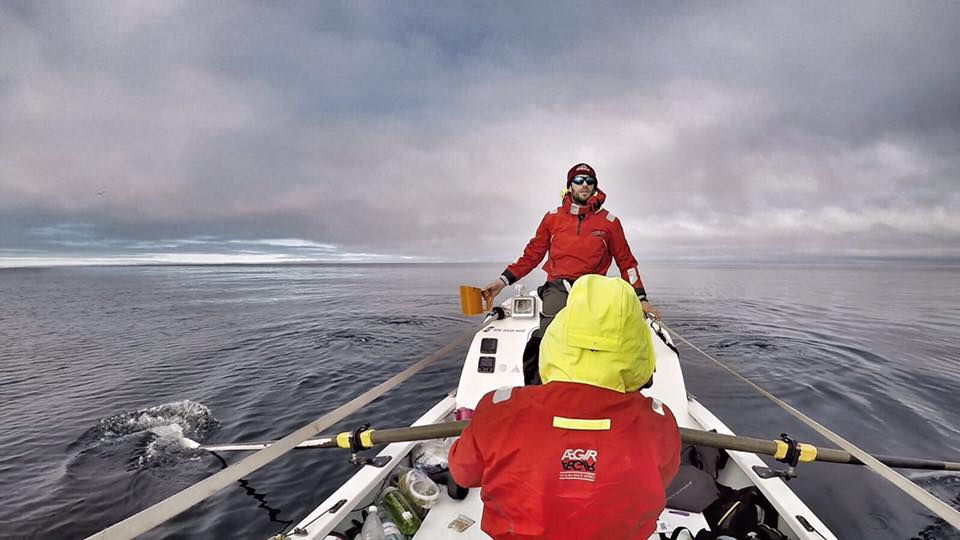An international team of rowers ended a record-breaking expedition through the Arctic Ocean on Monday after becoming stranded on a remote Norwegian island partway through their month-and-a-half-long journey.
They had set out to break several world records while using the mission to raise money for a school in the Himalayas. They achieved 11 of 12 expected world records, related to distance traveled and location in the Arctic, before having to call off their mission.
Now, it could be at least another week before the crew of six adventurers, whose expedition was called the Polar Row, is evacuated from the island where they sought refuge on Aug. 19, according to social media posts by its members.
The rowers — from Britain, Iceland, India, Norway and the United States — took to sea from the northern coast of Norway on July 20 and headed north to an island on the Svalbard archipelago. They continued to the Arctic ice shelf — the first rowing crew recorded as making it that far north — before turning south toward Iceland.
But with the skies cloudy for days at a time, the boat’s solar-powered batteries drained, and its electrical equipment shut off. That left the rowers without navigational aids and forced them to rely on manual steering, according to a post on the Polar Row Facebook page that recounted the decision to head for shore.
As conditions aboard the 30-foot boat deteriorated, the rowers abandoned their intended course and headed for Jan Mayen island instead. The small volcanic island is about halfway between Norway and Greenland.
“I’ve never been so wet and cold for so long,” Alex Gregory, a British rower and two-time Olympic gold medalist, wrote in an Instagram post on Aug. 17, two days before the crew reached land. “It’s seeping into my bones, there is absolutely no escape from it.”
On Monday, nine days after reaching Jan Mayen, the crew officially ended its journey.
“A successful expedition is also one where everyone goes home safe and in good health to their family and friends,” one of the rowers, Carlo Facchino, wrote on the Polar Row Facebook page. “With that, our expedition now comes to an end having achieved the ultimate in success.”
Jan Mayen is not permanently inhabited, but is staffed by around 18 members of the Norwegian Armed Forces and the Norwegian Meteorological Institute who have a base there and welcomed the crew into their facilities.
As crew members wait to be evacuated, they have been detailing their journey on social media.
“The hospitality has been unbelievable — they’ve saved our lives,” Gregory said in a video posted to his Twitter account.
The clip shows a desolate beach strewn with driftwood and whale bones.
Private airplanes are not permitted to land on the island, so the rowers are waiting to see when they might be able to return home.
“There is news that a boat may be coming past next week that may have space on board for us,” Gregory wrote in a post on Saturday. “Hopefully they will be willing to allow us to jump aboard and begin the journey home.”
The expedition’s captain, Fiann Paul, initially tried to have a fresh crew brought to the island to continue the journey, he said in an email. Flight restrictions on Jan Mayen made that impossible, but Paul vowed to attempt the Arctic journey again.
“We will row again,” he said, “maybe an even bigger route than this one.”
© 2017 New York Times News Service
